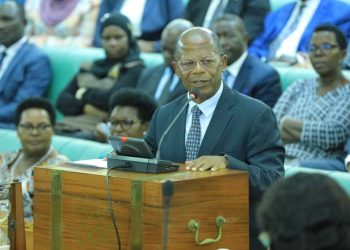William Obore won his battle to be deemed an innocent man in a landmark decision in which the court of appeal expressed regret to him for the 11 years he was found guilty of aggravated robbery.
The three Court of Appeal judges who made the decision before they signed a 17-page verdict expressed “deep regret that the appellant has been in prison for more than 11 years now from the time he was arrested.”
Justices Hellen Obura, Catherine Bamugemereire, and Christopher Madrama made note of the fact that Mr. Obore’s 2012-filed appeal was considered more than nine years later. They added that his acquittal came after he had already served nearly ten years after his conviction.
“Obviously, the appellant has suffered great injustice. Well aware of the setbacks that this court has suffered in the past, we still make a humble appeal to the registry of this court to fix appeals for hearing on the basis of ‘first in first out’ to avoid such embarrassing scenarios,” the judges wrote.
When an innocent person is found guilty of a crime they did not commit, it is a case of wrongful conviction. In Uganda, the causes include ineffective legal counsel, improper behavior on the part of the police, and false confessions.
Convictions of this nature have detrimental effects on the victim, their families, and communities. Additionally, they have broader social implications, such as eroding public confidence in the criminal justice system.
Background
Mr. Obore received a 20-year prison sentence after being found guilty by former High Court Judge Stephen Musota on April 16, 2012.
Judge Musota sat in the Appeals court throughout the time between Mr. Obore’s false conviction and exoneration, and he was subsequently promoted to the Supreme Court. He was named Chief Inspector of Courts in January by Chief Justice Alfonse Owiny-Dollo.
Judge Musota’s ruling dissatisfied Mr. Obore, who appealed both his conviction and sentence on the grounds that the trial judge erred in law and fact by failing to properly consider the identification evidence and incorrectly convicting him of the crime of aggravated robbery.
Mr. Obore was charged with, tried for, and found guilty of the crime of aggravated robbery in violation of Sections 285 and 286(2) of the Penal Code Act. He was given a 20-year prison term.
The High Court was informed that on January 6, 2011, Anthony Olupot was robbed at gunpoint of a motorcycle with the registration number UDN 468D at Kanyumu Trading Center in Kumi District by Mr. Obore.
Furthermore, it was claimed that Mr. Obore threatened to shoot the victim either before or just after the crime in question.
According to the prosecution, Mr. Obore had hired Mr. Olupot, a motorcyclist, to drive him to the Kanyumu Trading Center.
When they arrived at Kanyumu Town Council while riding the same motorcycle, Mr. Obore allegedly stated he couldn’t find his wife there.
The prosecution further claimed that he told Mr. Olupot to take an alternate path to Ngora . Mr. Obore allegedly asked for a stop when driving past Oyalaituk Swamp so he could relieve himself, but he later returned wearing a black cloak.
According to the High Court documents, Mr. Obore pulled a gun and a knife and demanded in Swahili either the victim’s motorcycle or his life. According to reports, the terrified victim abandoned the motorcycle and fled. Mr. Obore rode away. After a case was filed, he was later taken into custody.
On April 16, 2012, Mr. William Obore was found guilty of aggravated robbery without adequate identifying evidence by then High Court Judge Stephen Musota and given a 20-year prison sentence.
































































